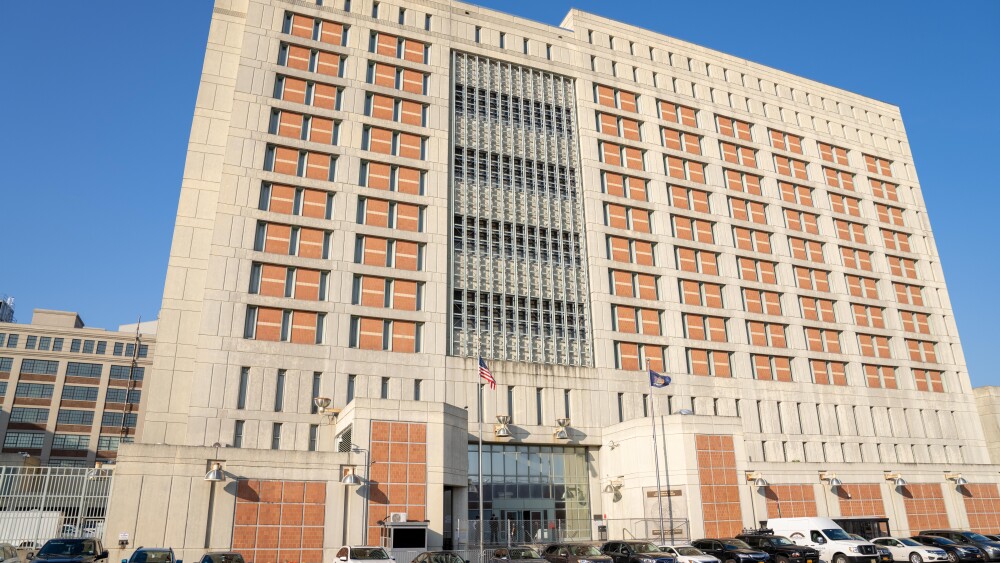By John Annese
New York Daily News
NEW YORK — The troubled MDC Brooklyn jail will no longer take inmates serving sentences, a major policy shift after a judge threatened to vacate one man’s sentence if he was sent to the notorious lockup.
As of August, federal defendants who are entering the prison system after they’re sentenced will no longer face the prospect of serving out their terms at the Sunset Park jail, the Bureau of Prisons has confirmed.
Though the jail, formally known as Metropolitan Detention Center, mainly houses suspects awaiting prosecution, a small percentage of its 1,200 inmates are not there pretrial and white-collar defendants with sentences shorter than a year can wind up serving their time there.
“Effective since August, the Federal Bureau of Prisons (FBOP) has temporarily paused all initial designations to the minimum security cadre component of MDC Brooklyn,” BOP spokeswoman Randilee Giamusso confirmed to the Daily News. “There are currently 42 individuals serving their sentences at MDC Brooklyn.”
Giamusso would not comment on if an Aug. 5 ruling by Long Island Federal Court Judge Gary Brown led to the decision.
Brown ruled he would vacate a 75-year-old tax scammer’s nine-month sentence and give him house arrest instead if he was sent to MDC, citing the “dangerous, barbaric conditions” at the jail. The scammer will serve his time at a medical institution in Massachusetts.
“I think it’s kind of obvious in response to what Judge Brown did,” said one law enforcement source familiar with the federal courts.
The Brooklyn jail has been plagued for years by gross understaffing, medical mistreatment, atrocious conditions and violence. Federal judges routinely reduce prison sentences for defendants who have had to endure horrific conditions there while being held pretrial.
“Allegations of inhumane treatment at MDC continue … and judges in this district are subject to a steady drumfire of such charges, often uncontested by prosecutors,” Brown wrote in his sentencing decision.
The judge detailed a string of violence at MDC, including two murders and a caught-on-video assault that showed a trio of MS-13 attackers stabbing a fellow gang member for 37 seconds before a lone correction officer arrived to stop them.
“Taken together, these incidents demonstrate a woeful lack of supervision over the facility, a breakdown of order and an environment of lawlessness within its confines that constitute unacceptable, reprehensible and deadly mismanagement,” Brown said.
The Bureau of Prisons’ shift in policy surfaced publicly during the sentencing last week of Stephen Mead, a former Ticketmaster executive convicted of hacking a rival ticket company’s servers, in Brooklyn Federal Court.
Mead, who spent 107 days in an Italian jail and one night at MDC before his release on bail in June, received time served, but prosecutors were asking for prison time.
In his pitch to the sentencing judge, Assistant U.S. Attorney Doug Pravda tried to get ahead of any concerns that Mead, who has several health problems, might get sent to MDC if the judge agreed to a short sentence.
A recent study analyzed data on the number of COs and the number of prisoners in each state. Watch the video below to see which states have the most understaffed prisons.
“The government has been advised that the Bureau of Prison’s Designation and Sentence Computation Center has been instructed not to designate to MDC Brooklyn,” Pravda wrote on Sept. 3.
Mead’s attorney pushed back in a court filing, writing that the prosecutor couldn’t guarantee Mead wouldn’t end up at MDC — so on Thursday, Pravda clarified further in open court, saying that the prison system’s policy had recently charged, and MDC was broadly off the table.
“We are pleased that the court recognized that a time-served sentence was appropriate, and Mr. Mead looks forward to putting this case behind him,” Mead’s lawyer, Brian Jacobs said.
Defense attorney Noam Biale, who is representing an inmate who didn’t receive all of his medication in the days after an emergency appendix procedure, said the new policy raises a question.
“If both judges and the [ Bureau of Prisons ] recognize it’s not an appropriate place for people to serve their sentences, how can it be appropriate to jail people who are presumed innocent there?” he asked.
—
©2024 New York Daily News.
Visit nydailynews.com.
Distributed by Tribune Content Agency, LLC.















